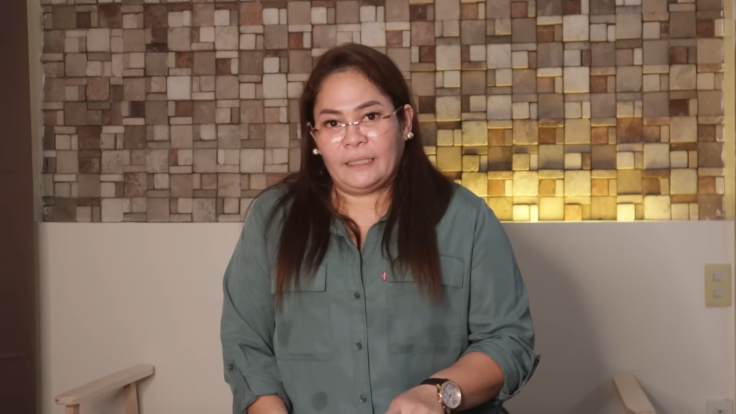Who is Rudy Baldwin? Chilling 'Biblical Awakening' Prophecy Leaves Filipinos Terrified After Massive 7.6-Magnitude Davao Quake

A massive 7.6-magnitude earthquake that rocked Davao Oriental, Philippines, has reignited nationwide debate over psychic Rudy Baldwin, the self-styled 'visionary' whose online prophecy about a coming 'Biblical awakening' went viral just days before the disaster.
Her earlier video, viewed more than 1.8 million times, described 2025 as a year of 'divine reckoning', warning that the earth would 'shake violently.' The timing has left Filipinos both fascinated and frightened.
Viral Predictions and Social Media Panic
Following the quake, Baldwin's followers flooded Facebook and X (formerly Twitter) with posts linking her prophecy to the event. Hashtags bearing her name topped Philippine trends, with users split between calling her a messenger of God and accusing her of exploiting tragedy.
Believers insist the quake validates her warning of an 'earthly awakening.' Critics counter that her prophecies are vague enough to fit any calamity, calling them classic cases of post-event interpretation. As one sceptical commenter put it: 'She says "shaking" every year — eventually something matches.'
From Facebook Prophet to National Phenomenon
Rudy Baldwin has become a household name in the Philippines over the past few years, her cryptic predictions often triggering viral frenzies. Her posts blend moral reflection with apocalyptic imagery, referencing celebrity deaths, disasters, and 'messages from divine forces.'
In an October 2024 video still circulating online, she described visions of 'fire, floods, and chaos,' urging followers to 'repent before the world resets.' Such statements, though nonspecific, resonate strongly in a country where spirituality and superstition often intersect during crisis.
A Divided Public Reaction
Public opinion towards Baldwin and her prophecies has become even more divided due to the recent Davao earthquake, which has increased tensions between believers and sceptics.
For those who follow her, this disaster is indisputable evidence of divine revelation. They swarm to her social media profiles, flooding the comment sections with expressions of awe, repentance, and prayers. She is seen by many as a prophet of the modern era, sent by God to offer warnings during a time of moral decline and scepticism.
Her critics, however, are still not convinced. They claim that Baldwin's predictions are repetitive and vague, intended to seem profound without committing to details.
One user commented: 'She talks about shaking, darkness, and suffering every year.'
'Eventually, something is bound to match.' To them, her so-called prophecies are more coincidences than divine insights, heightened by fear and selective recall in times of stress.
The argument has evolved into a microcosm of a broader societal gap between faith and reason, prophecy and probability, demonstrating how catastrophe frequently blurs the distinction between scepticism and believing.
Experts Warn Against Spreading Panic
The Philippine Institute of Volcanology and Seismology (PHIVOLCS) confirmed that the Davao quake was caused by movement along the Philippine Trench, a highly active fault zone.
Seismologists urged the public not to associate tectonic activity with supernatural causes, warning that superstition can hinder emergency preparedness and amplify misinformation.
'People seek order in chaos,' said media sociologist Allan Dela Cruz. 'But when predictions go viral, fear can spread faster than facts.'
Media experts have cautioned the public against taking Baldwin's prophecies literally. They warn that linking natural disasters to spiritual messages can heighten fear and misinformation, especially in a country prone to earthquakes and typhoons.
'People seek meaning in times of disaster,' one communication analyst said. 'Baldwin gives them that sense of meaning, even if it blurs the line between faith and fear.'
Between Faith and Fear
It is unclear if Baldwin's prophecy was a coincidence or something more. Her increasing influence demonstrates how fear, spirituality, and superstition are intertwined in times of crisis.
For now, the notion of a 'Biblical awakening' is still present in the public imagination. And as aftershocks vibrate across Davao, so does the lingering question: What if she was right?
Silence From Baldwin Amid Speculation
As speculation grows, Baldwin has not issued any statement about the quake. Her Facebook page continues to post cryptic messages, prayers, and pleas for spiritual vigilance. Despite repeated warnings from officials to verify information, many Filipinos still link her 'Biblical awakening' prophecy to the recent seismic event.
For now, the mystery remains unresolved — an unsettling blend of coincidence, belief, and anxiety in a quake-prone nation searching for meaning after disaster.
© Copyright IBTimes 2025. All rights reserved.





















